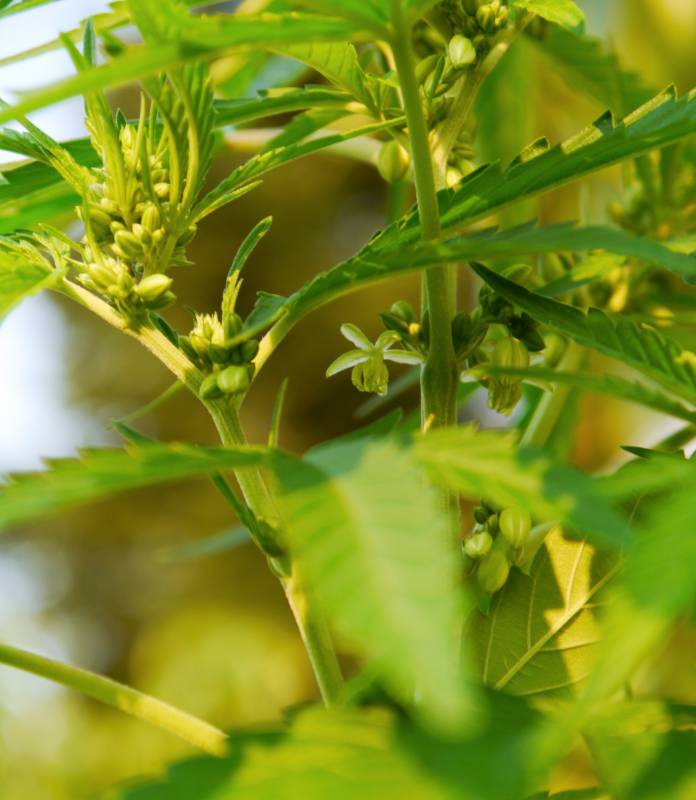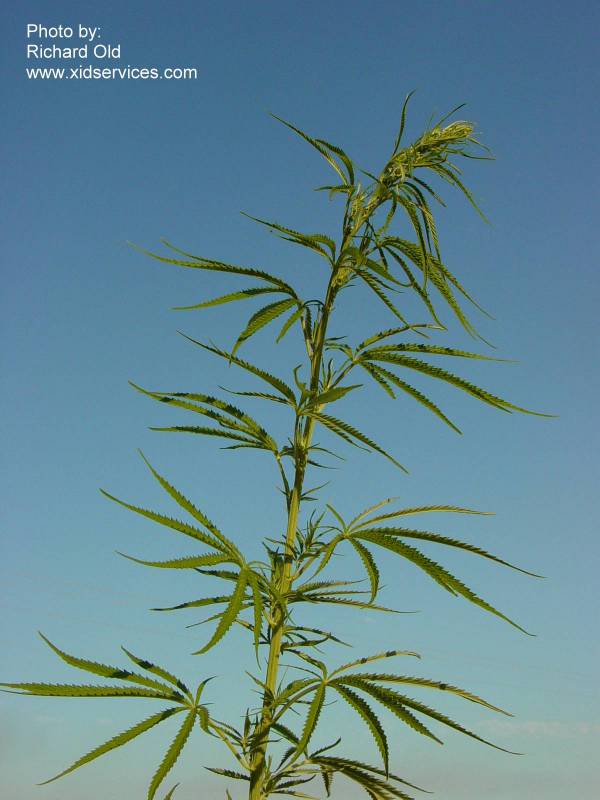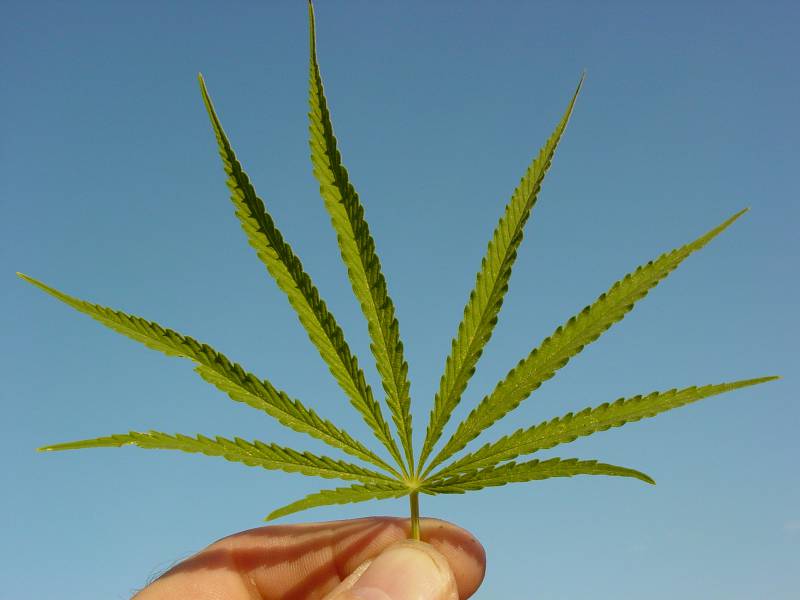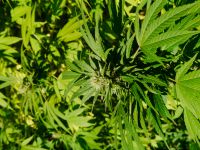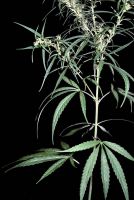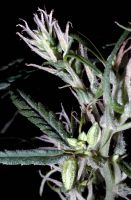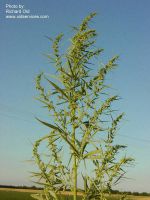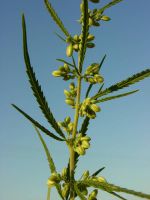Distribution: Occurring in scattered locations on both sides of the Cascades crest, but not likely persisting anywhere; occurring sporadically in other areas of North America.
Habitat: Illegal plantings in forest openings, roadsides, wastelots, and other disturbed areas, where escaping from cultivation.
Flowers: June-September
Origin: Introduced from Asia
Growth Duration: Annual
Conservation Status: Not of concern
Pollination: Wind
Dioecious, annual herbs from a taproot, the stems erect, 0.2-6 m. tall, simple to well-branched.
Leaves palmately compound, with petioles 2-7 cm. long; blades of leaflets 3-9, linear to linear-lanceolate, 3-15 cm. long and 0.2-1.7 cm. wide, the margins serrate, the surfaces with yellowish-brown, resinous dots.
Staminate inflorescences paniculate, erect, with numerous flowers; sepals 5, greenish, ovate to lanceolate, 2.5-4 mm. long; stamens 5, opposite the sepals; pistillate flowers on congested pseudospikes, sessile, enclosed by glandular, beaked bracteoles; perianth appressed to the base of the ovary.
Achenes ovoid, 2.5 mm. long, white or greenish, mottled with purple.
Publication: Sp. Pl. 2: 1027. 1753.
PNW Herbaria: Specimen records of Cannabis sativa in the Consortium of Pacific Northwest Herbaria database
WA Flora Checklist: Cannabis sativa checklist entry
OregonFlora: Cannabis sativa information
E-Flora BC: Cannabis sativa atlas page
CalPhotos: Cannabis sativa photos

